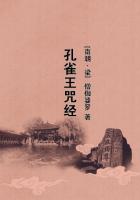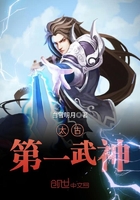Frost.
January 23rd.--At noon to-day I and my white greyhound, Mayflower, set out for a walk into a very beautiful world,--a sort of silent fairyland,--a creation of that matchless magician the hoar-frost.
There had been just snow enough to cover the earth and all its covers with one sheet of pure and uniform white, and just time enough since the snow had fallen to allow the hedges to be freed of their fleecy load, and clothed with a delicate coating of rime. The atmosphere was deliciously calm; soft, even mild, in spite of the thermometer; no perceptible air, but a stillness that might almost be felt, the sky, rather gray than blue, throwing out in bold relief the snow-covered roofs of our village, and the rimy trees that rise above them, and the sun shining dimly as through a veil, giving a pale fair light, like the moon, only brighter. There was a silence, too, that might become the moon, as we stood at our little gate looking up the quiet street; a Sabbath-like pause of work and play, rare on a work-day; nothing was audible but the pleasant hum of frost, that low monotonous sound, which is perhaps the nearest approach that life and nature can make to absolute silence. The very waggons as they come down the hill along the beaten track of crisp yellowish frost-dust, glide along like shadows; even May's bounding footsteps, at her height of glee and of speed, fall like snow upon snow.
But we shall have noise enough presently: May has stopped at Lizzy's door; and Lizzy, as she sat on the window-sill with her bright rosy face laughing through the casement, has seen her and disappeared. She is coming. No! The key is turning in the door, and sounds of evil omen issue through the keyhole--sturdy 'let me outs,' and 'I will goes,' mixed with shrill cries on May and on me from Lizzy, piercing through a low continuous harangue, of which the prominent parts are apologies, chilblains, sliding, broken bones, lollypops, rods, and gingerbread, from Lizzy's careful mother.
'Don't scratch the door, May! Don't roar so, my Lizzy! We'll call for you as we come back.' 'I'll go now! Let me out! I will go!' are the last words of Miss Lizzy. Mem. Not to spoil that child--if I can help it. But I do think her mother might have let the poor little soul walk with us to-day. Nothing worse for children than coddling. Nothing better for chilblains than exercise. Besides, I don't believe she has any--and as to breaking her bones in sliding, I don't suppose there's a slide on the common. These murmuring cogitations have brought us up the hill, and half-way across the light and airy common, with its bright expanse of snow and its clusters of cottages, whose turf fires send such wreaths of smoke sailing up the air, and diffuse such aromatic fragrance around. And now comes the delightful sound of childish voices, ringing with glee and merriment almost from beneath our feet. Ah, Lizzy, your mother was right! They are shouting from that deep irregular pool, all glass now, where, on two long, smooth, liny slides, half a dozen ragged urchins are slipping along in tottering triumph. Half a dozen steps bring us to the bank right above them. May can hardly resist the temptation of joining her friends, for most of the varlets are of her acquaintance, especially the rogue who leads the slide,--he with the brimless hat, whose bronzed complexion and white flaxen hair, reversing the usual lights and shadows of the human countenance, give so strange and foreign a look to his flat and comic features. This hobgoblin, Jack Rapley by name, is May's great crony; and she stands on the brink of the steep, irregular descent, her black eyes fixed full upon him, as if she intended him the favour of jumping on his head. She does: she is down, and upon him; but Jack Rapley is not easily to be knocked off his feet. He saw her coming, and in the moment of her leap sprung dexterously off the slide on the rough ice, steadying himself by the shoulder of the next in the file, which unlucky follower, thus unexpectedly checked in his career, fell plump backwards, knocking down the rest of the line like a nest of card-houses. There is no harm done; but there they lie, roaring, kicking, sprawling, in every attitude of comic distress, whilst Jack Rapley and Mayflower, sole authors of this calamity, stand apart from the throng, fondling, and coquetting, and complimenting each other, and very visibly laughing, May in her black eyes, Jack in his wide, close-shut mouth, and his whole monkey-face, at their comrades' mischances. I think, Miss May, you may as well come up again, and leave Master Rapley to fight your battles. He'll get out of the scrape. He is a rustic wit--a sort of Robin Goodfellow--the sauciest, idlest, cleverest, best-natured boy in the parish; always foremost in mischief, and always ready to do a good turn. The sages of our village predict sad things of Jack Rapley, so that I am sometimes a little ashamed to confess, before wise people, that I have a lurking predilection for him (in common with other naughty ones), and that I like to hear him talk to May almost as well as she does. 'Come, May!' and up she springs, as light as a bird. The road is gay now; carts and post-chaises, and girls in red cloaks, and, afar off, looking almost like a toy, the coach. It meets us fast and soon. How much happier the walkers look than the riders--especially the frost-bitten gentleman, and the shivering lady with the invisible face, sole passengers of that commodious machine! Hooded, veiled, and bonneted, as she is, one sees from her attitude how miserable she would look uncovered.
Another pond, and another noise of children. More sliding? Oh no!















